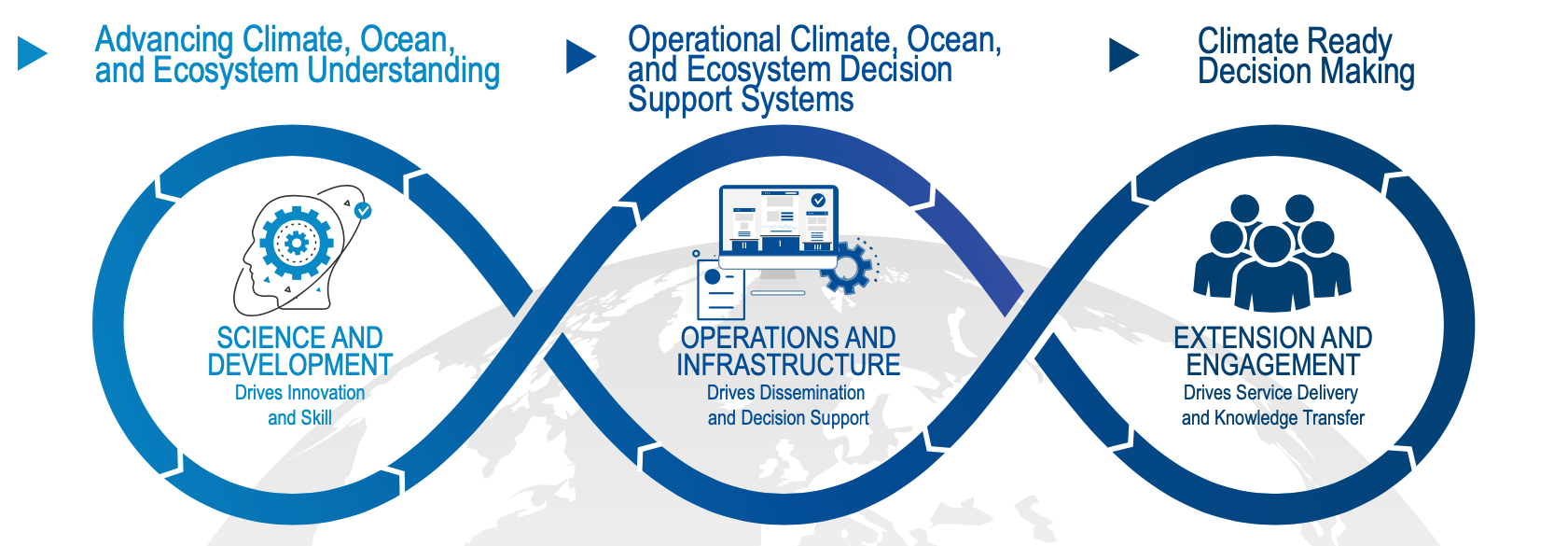Welcome to the Information Hub!
This is a searchable database for finding NOAA and other data and analysis websites relevant to CEFI. Searches can be conducted to find a wide range of atmospheric and physical, chemical and biological ocean data, including reanalysis and model output. Searches can also be used to locate webtools designed to analyze and visualize data on topics such as climate change and marine heatwaves.
The Challenge
Climate change is significantly impacting the nation’s valuable marine and Great Lakes ecosystems, fisheries and the many people, communities, and economies that depend upon them. Warming oceans, rising seas, melting sea ice and increasing acidification are affecting ecosystem structure and the distribution and abundance of marine species in many regions. These changes affect many parts of NOAA’s mission, from fisheries management and aquaculture to conservation of protected resources and habitats. The impacts are expected to increase and there is much at risk. In the U.S., for example, marine ecosystems annually contribute over $210 billion and 1.7 million jobs from fisheries and provide a range of other vital services including recreation and protection from coastal storms and erosion. To safeguard fisheries and other resources in the face of rapidly changing oceans, resource managers and stakeholders urgently need better information on what’s changing, who’s at risk and how to increase resilience. NOAA currently must develop the ocean modeling and decision-support system needed to produce, deliver and use information to sustain marine resources and resource-dependent communities in a changing climate.
NOAA’s Response
The Climate, Ecosystems, and Fisheries Initiative (CEFI) is a cross-NOAA effort to build the nation-wide, operational ocean modeling and decision support system (System) needed to reduce impacts, increase resilience and help marine resources and resource users adapt to changing ocean conditions. The end-to-end System will provide decision makers with the actionable information and capacity they need to prepare for and respond to changing conditions today, next year and for decades to come. The CEFI System addresses four core requirements for climate-ready decision-making for marine resources:
- Delivery of state-of-the-art ocean and Great Lakes forecasts and projections for use in developing climate-informed management advice;
- Operational capability to use ocean and Great Lakes forecasts and projections to assess risks, evaluate management strategies and provide robust management advice for changing conditions;
- Continuous validation and innovation through observations and research;
- Capability to use climate-informed advice to reduce risks and increase the resilience of resources and the people that depend on them.
The CEFI System will leverage existing capabilities and make critical new investments in the following three System elements. Each of the three System elements include components essential for the System to be fully functional as illustrated in the next figure:
- Climate, Ocean, and Ecosystem Understanding
- Operational Decision Support Systems
- Climate Ready Decision Making

